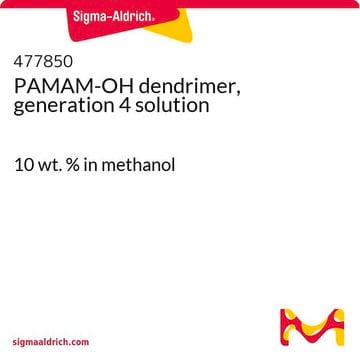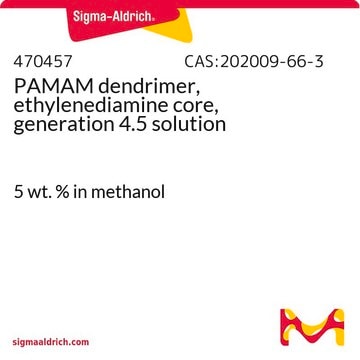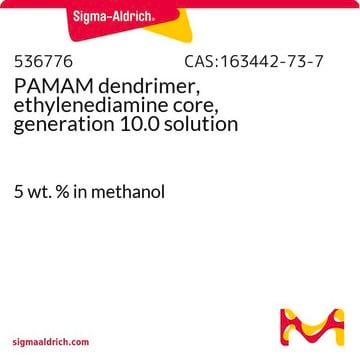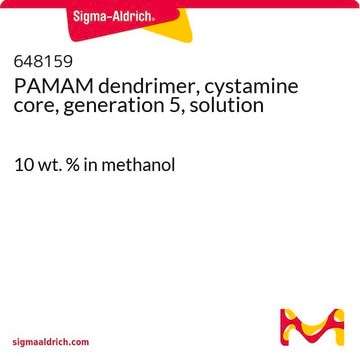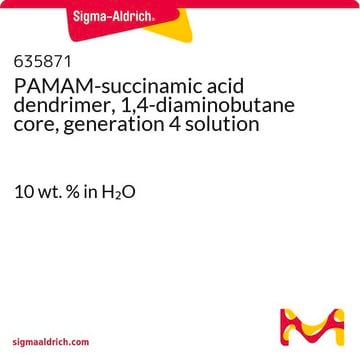412449
PAMAM dendrimer, ethylenediamine core, generation 4.0 solution
10 wt. % in methanol
Synonym(s):
Starburst Generation 4
About This Item
Recommended Products
description
amino surface groups
form
solution
mol wt
generation 4.0
feature
core type ethylenediamine core (2-carbon core)
concentration
10 wt. % in methanol
no. Surface Groups
64
refractive index
n20/D 1.348
bp
64.7 °C
density
0.813 g/mL at 25 °C
storage temp.
2-8°C
General description
Application
Physical form
Legal Information
signalword
Danger
Hazard Classifications
Acute Tox. 3 Dermal - Acute Tox. 3 Inhalation - Acute Tox. 3 Oral - Flam. Liq. 2 - STOT SE 1
target_organs
Eyes
Storage Class
3 - Flammable liquids
wgk_germany
WGK 3
flash_point_f
51.8 °F - closed cup
flash_point_c
11 °C - closed cup
ppe
Eyeshields, Faceshields, Gloves
Certificates of Analysis (COA)
Search for Certificates of Analysis (COA) by entering the products Lot/Batch Number. Lot and Batch Numbers can be found on a product’s label following the words ‘Lot’ or ‘Batch’.
Already Own This Product?
Find documentation for the products that you have recently purchased in the Document Library.
Customers Also Viewed
Articles
Replace volatile organic solvents with water due to environmental concerns, overcoming challenges in solubility.
Our team of scientists has experience in all areas of research including Life Science, Material Science, Chemical Synthesis, Chromatography, Analytical and many others.
Contact Technical Service



